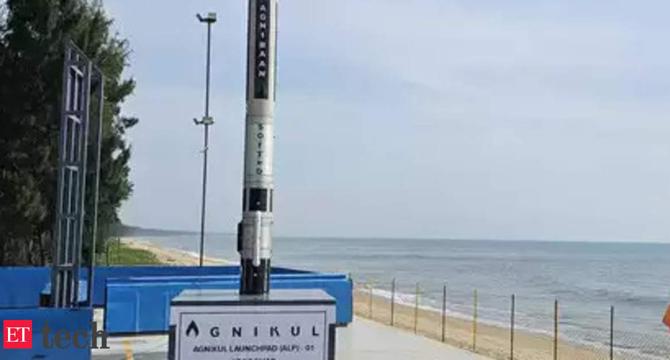Economic Times
2w
411

Image Credit: Economic Times
Agnikul to go commerical early next year, aims 25 launches in a year
- Agnikul Cosmos is set to launch commercial operations within 6-8 months and is in active discussions with 30-40 potential clients for demand exploration for its rocket, Agnibaan.
- Agnikul's 3D-printed engine-equipped rocket is attracting interests from newer industries that are considering space for advanced manufacturing processes: Ravichandran.
- The company aims to scale its operations to support around 25 launches per year and become a significant global player in the small satellite launch vehicles market.
- Agnikul has developed its proprietary electronics, software, and hardware, and at present, offers one of the cheapest launch vehicles globally.
- The startup carried out a sub-orbital test flight of its 3D-printed semi-cryogenic rocket earlier this year.
- Agnikul will focus on capitalizing on its 3D-printed engine in the future as a separate part.
- According to Tracxn’s data, the global funding for Small Satellite Launch Vehicles (SSLV) reached $499.4 million in 2024, whereas India’s SSLV saw a total funding of $64 million in 2023.
- Agnikul aims to become the strongest player globally in small satellites, said Ravichandran.
- A little more awareness among investors and suppliers in India’s burgeoning space ecosystem about the industry's scale can help India grow as a global space power, added Ravichandran.
Read Full Article
24 Likes
For uninterrupted reading, download the app